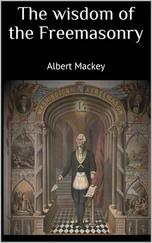Far from being outraged by his former teacher’s accusations, Ossama was smiling: he knew the entire diatribe was merely a roundabout way of celebrating their reunion. Nimr was too proud to let any opportunity pass for showing his anger at anything that could possibly undermine the sacred rules of his art.
Ossama had never forgotten his own state of physical and mental exhaustion when he’d met the man who was to become his teacher and supporter during the entire period of his apprenticeship. A few years earlier, wishing to help his disabled father, he had abandoned his studies, assuming that already armed with the ultimate knowledge — how to read and write — it would be possible for him to find a well-paid position. But he was rapidly disillusioned; no one wanted his knowledge. Courier, shoe-shine boy, peanut seller, servant — he got to know the misery of the needy in search of their daily bread. Then came the long period when he had no work, and begging became his only job, his sole source of income. It was a painful ordeal: with his unmaimed, healthy body, begging turned out to be a very unprofitable line of work for Ossama. He was at a disadvantage compared to all the injured — blind or one-armed — who ostentatiously practiced this ideal, tax-exempt trade. In a moment of sheer delirium, he thought about cutting off an arm or a leg in order to appeal to those dutiful donors enticed by open wounds and weakened bodies. Finally, starving and on the verge of suicide (it was so easy to die by throwing yourself beneath the wheels of all those cars eager to mow you down), he’d sat down on the curb, brooding over his sorry fate, and waited for a bus or a truck loaded with watermelons to pass by, a guarantee of a definite demise. Just then a jovial-looking individual with the relaxed appearance of a lord of the underworld, seeing him in this delicate position — the intense traffic made the curb as dangerous as the edge of an erupting volcano — munificently tossed Ossama a twenty-piaster coin. This individual was none other than Nimr, who had just confiscated the purse of an important flour dealer and, as was his custom, was distributing a little of his illicit gains to the poor, thereby lending to his trade some of that social-mindedness generally ascribed to bandits of legend. He was stupefied when Ossama picked up the coin and returned it to him saying in the disabused tones of a dying man that he had no more use for money. Nimr sensed before him a tragic, extremely complex case and sat down next to Ossama with the curiosity of an archeologist coming upon a fake mummy in a museum. At first the young man didn’t respond to his questions; the idea of suicide was still haunting him and this stranger — whom he deemed disreputable as well as powerless to come to his aid — annoyed him with his inquisitiveness. But in the end Nimr’s solicitude eased Ossama’s pain and a fraternal bond was created between him and the man who would soon teach him how to free himself from destiny. In a monologue punctuated by gasps, Ossama described his long ordeal searching for work and his fruitless experience as a beggar handicapped by the absence of bodily injury. He added that he had made up his mind to commit suicide and that he was sitting on this curb waiting for a vehicle to go by large enough to ensure a swift death. Dazzled by such honesty in distress, Nimr helped Ossama up and immediately took him to a local restaurant for a bowl of beans. While Ossama was eating his fill of this invigorating dish, Nimr told his new protégé about the wonderful life he led, a life of freedom based on the universality of theft. He had been a pickpocket since his innocent (so to speak) childhood days and had become a highly skilled professional capable of teaching his art to even the most feebleminded of his fellow citizens. From time to time he was arrested, but prison didn’t bother him much; on the contrary, he saw it as a sort of rest cure. He would emerge vigorous and full of zeal, ready to take up his trade once again like a civil servant after a period of sick leave. Having flaunted his glorious career, he then told Ossama that he was prepared to instill his mastery in a boy who knew how to read and write — rare talents in a profession made up of illiterate elements with no political opinions. Ever more enchanted by this exceptional recruit, Nimr elaborated for the benefit of the young man his theory that theft was the just recovery of small change by the poor in a world where the grand thieves at the pinnacle of the social scale grew fat with impunity. Dumbfounded at first by what he’d just heard, Ossama was quick to grasp (the dish of beans having produced in his brain the same acumen as a little ball of high-quality hashish) the simplicity of these words that tossed into the void all the deceitful and apocryphal values accepted by the slavish multitudes. Full of gratitude and comforted by such new, flamboyant ethics, he accepted his savior’s proposal without suspecting that one day he’d become more skilled than his future master in a profession as old as humankind. For an entire winter Nimr taught Ossama how to acquire that nimbleness of the fingers that secures the reputation of virtuoso pianist and pickpocket alike. Then he let him loose, happy to have done a good deed — one he hoped would be taken into account on Judgment Day. Ossama proved not unworthy of this crash course, and he often saw his professor during the years when they worked in the same districts of the capital. Nimr, for his part, was extremely pleased at having divined in his young pupil the qualities essential to his stealthy trade that required, in addition to agility, a revolutionary consciousness. But when Ossama got it into his head to dress like Prince Charming in order to penetrate spheres reserved for the grand thieves, their occasions for meeting became rarer. Nimr, who persisted in gleaning his due from the ill-stocked pockets of his equals, could only with great difficulty escape from a tradition-bound police force totally lacking in imagination. A beloved guest of the penitentiary system, he often went months without seeing his brilliant student.
Nimr still had the disgruntled look of a man whose principles had just been violated. He planned on remaining in this ornery mood for a long time, but after a while Ossama’s impish grin managed to exhaust his feigned sulkiness. Obviously the young man was not paying any attention to his scoldings and, worse, couldn’t care less.
“I forgive you,” said Nimr, “because I think of you as my son — a son of a bitch, but my son nonetheless. I hope you have not been neglecting my teachings since you started working among the distinguished set.”
“I’ve always done as you taught me — and the ‘distinguished set’ can mostly be distinguished by the fatness of their wallets. I steal from them and they respect me. And every policeman whose path I cross greets me with deference.”
“I don’t doubt it. Those people are too stupid to read your profession on your face.”
“How could they? I’m wearing all the finery of prosperity. They think I’m rich. In their world, only poor people are thieves. That superstition goes back to antiquity, and it suits my business perfectly.”
“So, this is what learning is for! I see now that an intelligent boy like you could never be content with petty larceny! By Allah, you are the thief of the future! All those years of school served your ambition well.”
“School taught me only to read and write. And that sliver of learning set me on the surest road to starving to death in honesty and ignorance. You were the first to open my eyes to widespread corruption. To have understood that the only forces that drive humanity are thieving and swindling — that’s real intelligence. And you didn’t even go to school. Ever since I met you, I have stolen with a clear conscience and a happy heart. Better yet, I have the feeling that my activity contributes to the country’s prosperity because I spend the money I steal from the rich in a variety of shops that would perish without me and my peers.”
Читать дальше












